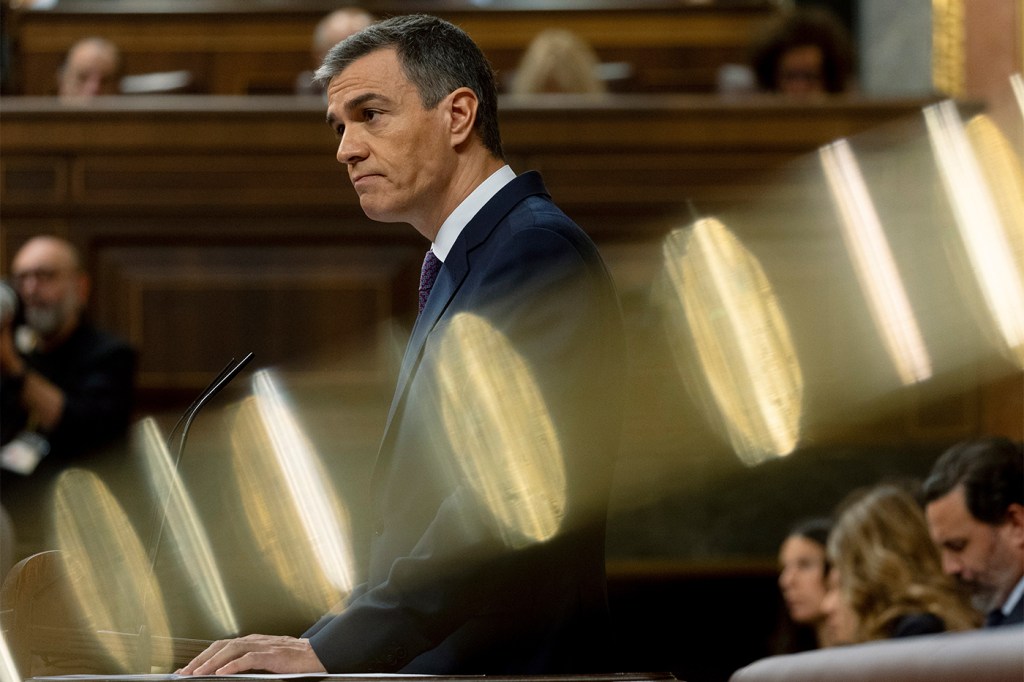Spain, Norway and Ireland recognize Palestinian statehood. How might the rest of Europe respond?
Spain, Norway and Ireland said on Wednesday that they would recognize an independent Palestinian state, a joint move that experts say puts pressure on Israel and other Western countries.

Spain, Norway and Ireland said Wednesday that they would recognize an independent Palestinian state, a joint move that experts say puts pressure on Israel and other Western countries at a critical moment in the Israel-Hamas war — but one whose import is largely unclear.
“I do think this is more than pure symbolism,” says Mai’a Cross, dean’s professor of political science, international affairs and diplomacy, and director of the Center for International Affairs and World Cultures at Northeastern University.
While more than 140 countries recognize Palestinian statehood worldwide, many Western countries, including the U.S., do not. The United Nations, because of the international difference in opinion, has only given partial recognition, according to The Economist.
Since the 1990s, Cross says the European Union has consistently supported both Israel’s right to exist and a two-state solution to the Israel-Palestinian conflict. “That’s been a very consistent, clear, codified, in-writing stance for the European Union, including all of its member states,” she says.
But as the war drags on, cracks in European opinion aren’t completely surprising, much as they may hurt the EU’s image at a moment when it is also trying to manage Russia’s war in Ukraine, Cross says. It’s possible that domestic declarations of support for Palestinian statehood among Western nations — while out of step with official EU policy — may open up diplomatic or trade channels between Palestinian leaders and those countries.
Still, those relationships would have to navigate the broader consensus — or lack thereof.
“The issue there is that the EU is split on this at the moment,” Cross says. “The EU is a foreign policy actor in itself, and if only some countries are recognizing Palestine, at least for the time being, then it doesn’t actually enable new trade or economic relationships at all because that is the EU’s remit.”
Will there be a domino effect in Europe?
The news could apply pressure not just on Israel, but on other European countries as talks over a potential cease-fire deal continue to stall.
“The fact that this seemed coordinated among the three states — I do think that’s a pressure point,” says Zinaida Miller, professor of law and international affairs at Northeastern.
The states’ declarations come on the heels of the International Criminal Court’s chief prosecutor announcing that he is pursuing arrest warrants for Israeli Prime Minister Benjamin Netanyahu, his defense minister and three Hamas leaders.
Miller says the move by the European countries shores up “what is already accepted within the international legal community, which is that the ICC does have jurisdiction” over the situation.
The question now becomes: will more nations follow suit?
“We’ll have to see in the coming days,” Cross says. “We could see more countries come forward and recognize Palestinian statehood, but we will certainly see other EU countries not doing that.”
What does statehood mean?
Miller emphasized that the Palestinian right to self-determination — to self-government free of occupation — is the question principally at the heart of the conflict.
“I think in American media there is a tendency to really forefront the European sign-ons,” Miller says. “And I understand why in the sense that they [the Europeans] have been more recalcitrant on this question, and thus it’s news — and is, in fact, very significant — once they sign on and make a declaration.”
She continues: “But it also tends to reinforce the idea that when Global South countries make a declaration about statehood in Palestine, that’s somehow ‘just politics’ as opposed to when European countries make such declarations.”
Celal Ozkızan, an assistant professor in international relations and politics on Northeastern’s London campus, says that while statehood was “quite a recent phenomenon” that took hold in the 20th century, it has become the “norm” in modern times.
Editor’s Picks
“When we talk about equal political representation at the international level, it happens through states,” he says.
“So in that way, statehood is really essential and all people seeking that and people fighting for that — they deserve it one way or another,” he continues. “We can discuss how as a matter of principle, but statehood is an essential part of recognition for any group of people.”
Ozkizan says he was “pessimistic” about whether the decision taken jointly by Dublin, Madrid and Oslo to recognize Palestinian statehood would have a domino effect across the capitals of Europe, but argued it was a “really important step.”
He highlights how the U.K. this year became one of Israel’s closest allies to declare it was considering recognizing a Palestinian state and French President Emmaneul Macron — while not going as far as British Foreign Secretary David Cameron — had made “a positive remark in that direction.”
Ultimately, Ozkizan says, those living in Israel and the Palestinian territories of Gaza and the West Bank will have to work toward a domestic solution they can live with. But international recognition of Palestinian statehood can still play a part in building toward a potential peace settlement and a two-state solution, he suggests.
“I believe that this recognition of Palestinian statehood is an attempt to level the playing field to some extent, this time in favor of the Palestinian people,” he says.
He continues: “Because, if there is going to be a sustainable solution, there has to be more or less a power-symmetry. Not a perfect one, but at least relatively symmetrical power relations between two people so that they can compromise.”












